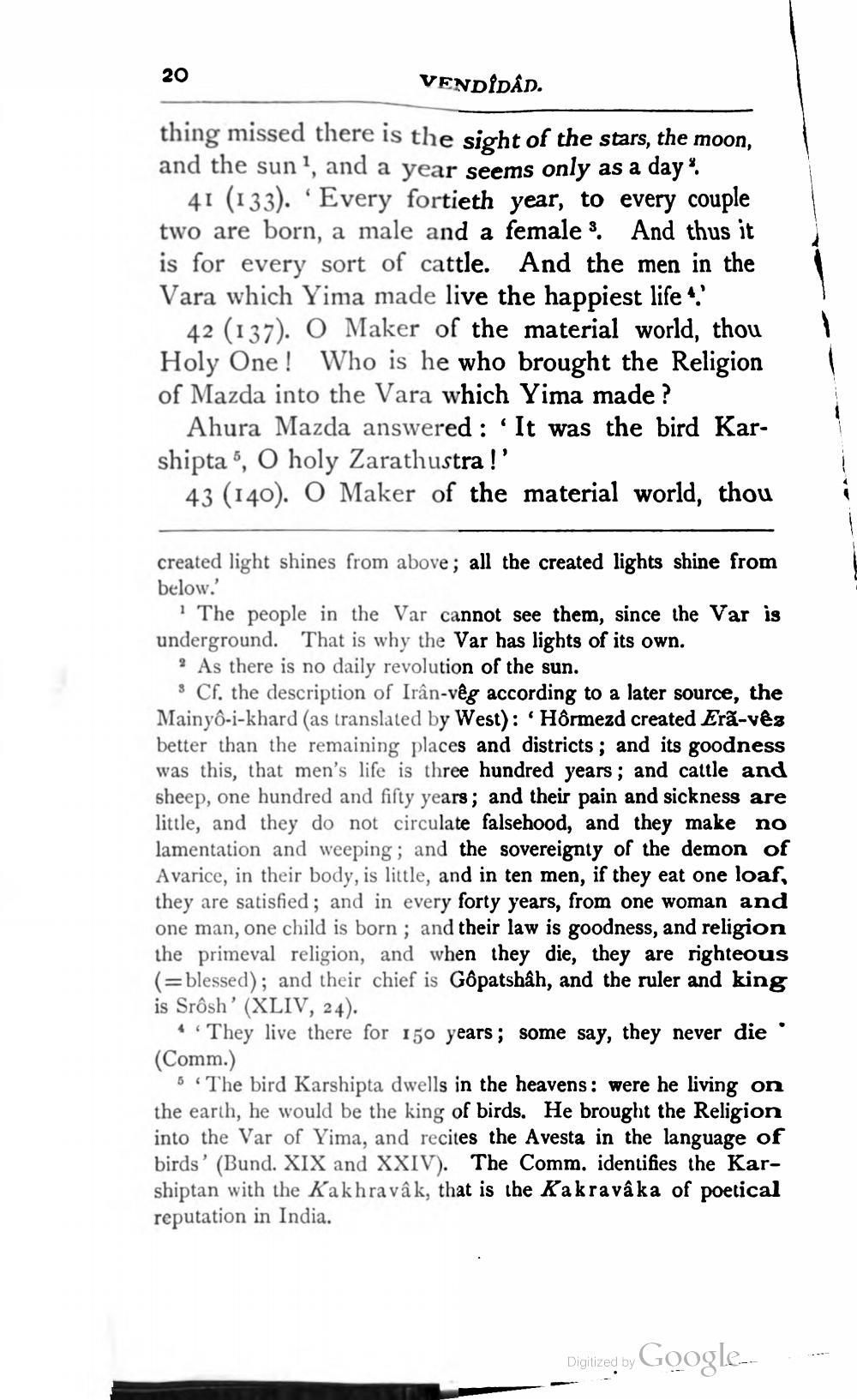________________
20
VENDIDAD.
thing missed there is the sight of the stars, the moon, and the sun1, and a year seems only as a day.
41 (133). Every fortieth year, to every couple two are born, a male and a female 3. And thus it is for every sort of cattle. And the men in the Vara which Yima made live the happiest life.'
42 (137). O Maker of the material world, thou Holy One! Who is he who brought the Religion of Mazda into the Vara which Yima made?
Ahura Mazda answered: 'It was the bird Karshipta 5, O holy Zarathustra!'
43 (140). O Maker of the material world, thou
created light shines from above; all the created lights shine from below.'
The people in the Var cannot see them, since the Var is underground. That is why the Var has lights of its own.
As there is no daily revolution of the sun.
Cf. the description of Irân-vêg according to a later source, the Mainyô-i-khard (as translated by West): Hôrmezd created Erã-vêz better than the remaining places and districts; and its goodness was this, that men's life is three hundred years; and cattle and sheep, one hundred and fifty years; and their pain and sickness are little, and they do not circulate falsehood, and they make no lamentation and weeping; and the sovereignty of the demon of Avarice, in their body, is little, and in ten men, if they eat one loaf, they are satisfied; and in every forty years, from one woman and one man, one child is born; and their law is goodness, and religion the primeval religion, and when they die, they are righteous (=blessed); and their chief is Gôpatshâh, and the ruler and king is Srôsh' (XLIV, 24).
They live there for 150 years; some say, they never die (Comm.)
5 The bird Karshipta dwells in the heavens: were he living on the earth, he would be the king of birds. He brought the Religion into the Var of Yima, and recites the Avesta in the language of birds' (Bund. XIX and XXIV). The Comm. identifies the Karshiptan with the Kakhravâk, that is the Kakravâka of poetical reputation in India.
Digitized by Google




